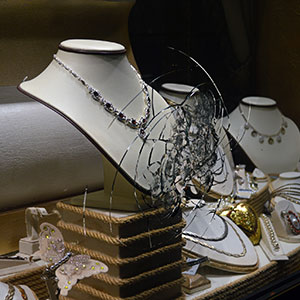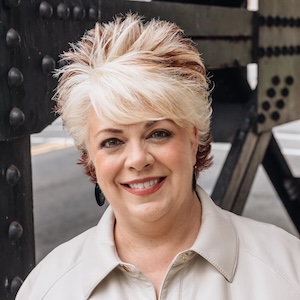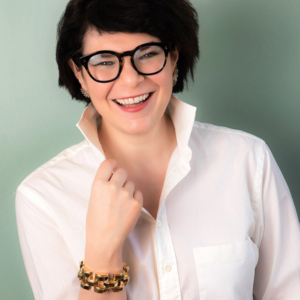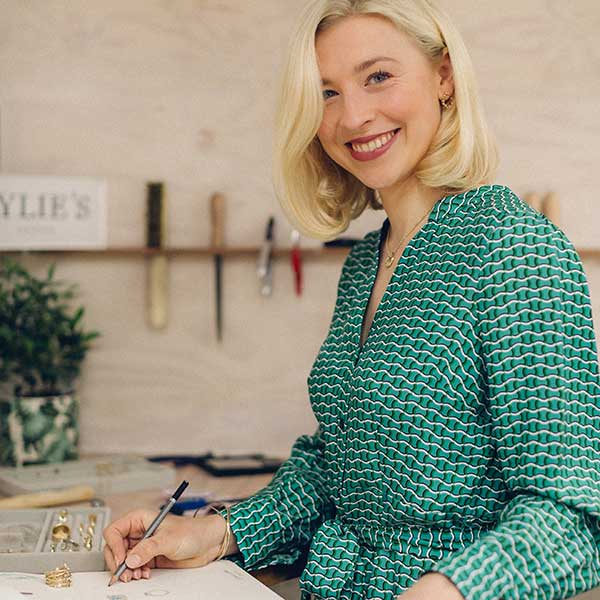
Admit it: You have an old smartphone, tablet, or laptop hidden in a kitchen drawer in your house right now. If so, Eliza Walter wants it.
Walter is the founder of jewelry brand Lylie, and its purpose is to take salvaged gold and silver recycled from electronic waste and turn it into sustainable jewelry. She also created an in-house gold exchange so her clients can scrap their unwanted jewels, which she then turns into new pieces.
“Our landfill sites are hidden gold mines,” Walter says in an email interview. “Urban mining is dismantling, separating, and recycling the different components that make up a piece of tech hardware, be that a mobile phone, gaming PCBs, or hard drive, with the objective of retrieving the salvaged gold and recycling the non-precious metals, ceramics, and plastics.
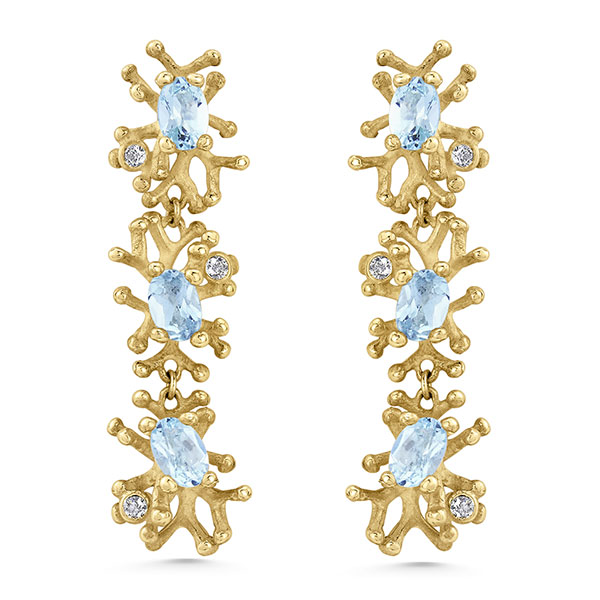
“While its scale is daunting, e-waste and urban mining offers an immense opportunity,” Walter says. “From our perspective, if you were to mine one ton of the earth’s ore, you would get a yield of under 30 grams of gold. If you were to mine one ton of e-waste, you would get a yield of 300 grams of salvaged gold. No one could dispute this efficiency.”
As a result of these efforts, Birmingham’s Assay Office gave her a specific Salvaged Gold hallmark to acknowledge the brand’s use of recycled precious metals—you can see the sun design on these works as a result.
“Hallmarking has been part of the British jewelry industry since 1300, not only this, but it is part of British law. It signals that an independent test has guaranteed a jewelry design’s precious metals content. It is a feature that sets it apart from Continental design,” Walter says.
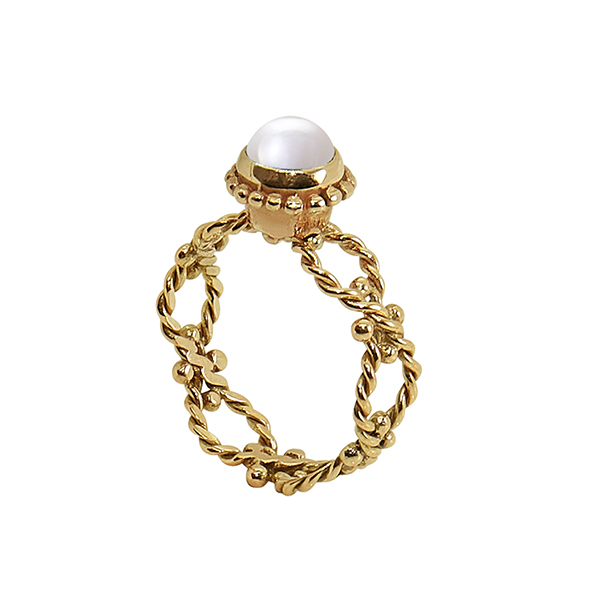
The fine jeweler walks the walk. She is a vegetarian, wears only vintage or secondhand clothing, and her West London studio is outfitted with upcycled furniture. “My passions are sustainability and design, in any form. It has always been a key part of any decision I make,” Walter says.
That is reflected as well in the names of her collections, whether it is Sea Treasures, which uses the shapes of coral reefs, honeycomb moray, and recycled, antique aquamarines, or Mudlarker, which imagines the work of a mudlarking search on the Thames and uses Elizabethan goldsmithing techniques and man-made gemstones.
Walter founded Lylie in 2017 when she was 24 years old, and she knew from the start that she wanted to buck tradition in the best way, given her inspirations and her aesthetics toward organic shapes, natural elements, and unisex design.
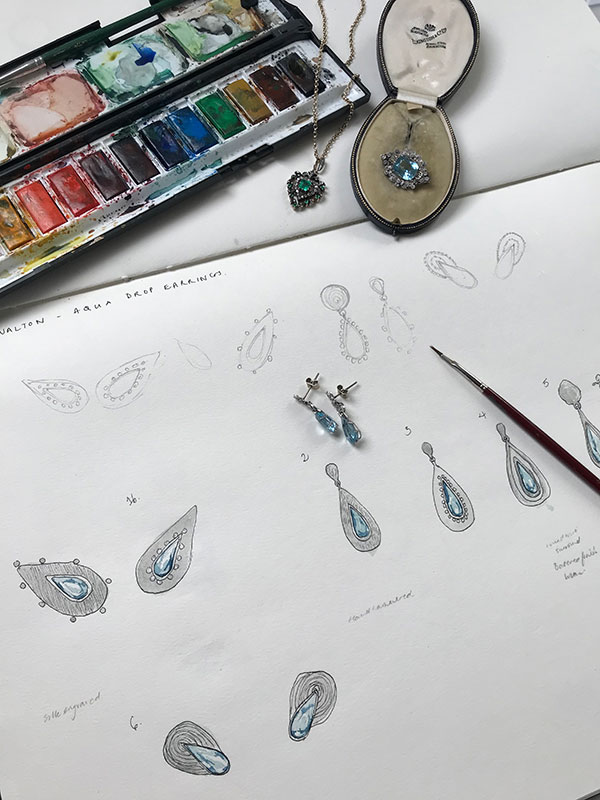
“I learned about the global problem of e-waste when completing my design and technology GCSE [General Certificate of Secondary Education] and thought about it a lot whilst completing my art and design foundation course and then my BA degree at Bristol Uni,” Walter says.
“During my GCSE, I was taken on a school trip to a local foundry that was just getting going. The owner, Peter, explained to us that our mobile phones’ circuit boards contain gold, platinum, and silver because the metals are inert and conductive.
“Then, when I was in my second year at Bristol University, I was awarded a grant from the Enterprise Society to research the idea further. Typical student and living in green Bristol, I reached out to Peter, the foundry owner. We have been working together ever since.”
Top: Eliza Walter created Lylie using her traditional goldsmithing education to create a nontraditional jewelry brand that uses e-waste and recycled gems or lab-grown diamonds to fashion her low-carbon-footprint pieces (photos courtesy of Lylie).
Follow me on Instagram and Twitter
Follow JCK on Instagram: @jckmagazineFollow JCK on Twitter: @jckmagazine
Follow JCK on Facebook: @jckmagazine

